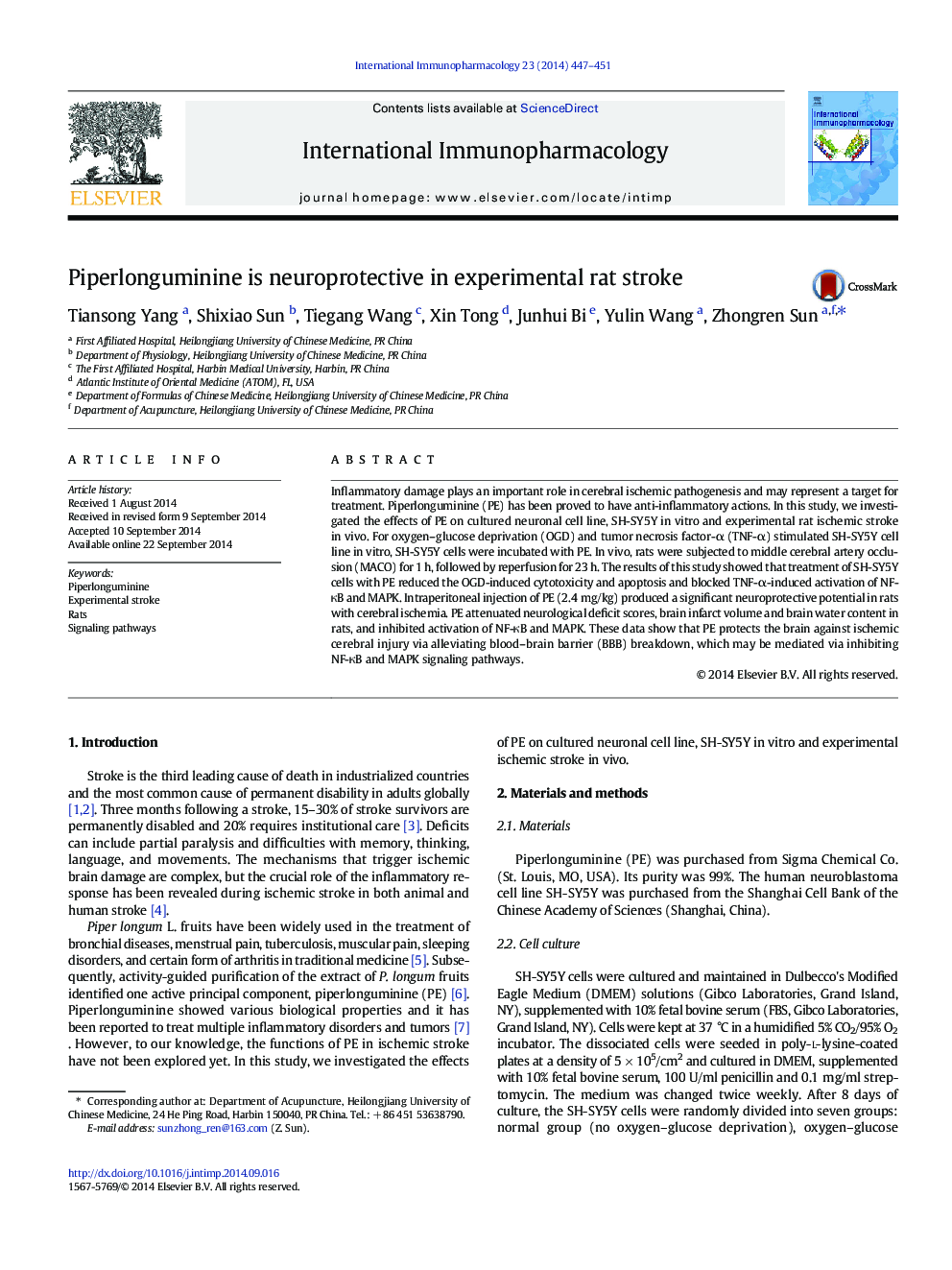| Article ID | Journal | Published Year | Pages | File Type |
|---|---|---|---|---|
| 5832541 | International Immunopharmacology | 2014 | 5 Pages |
Abstract
Inflammatory damage plays an important role in cerebral ischemic pathogenesis and may represent a target for treatment. Piperlonguminine (PE) has been proved to have anti-inflammatory actions. In this study, we investigated the effects of PE on cultured neuronal cell line, SH-SY5Y in vitro and experimental rat ischemic stroke in vivo. For oxygen-glucose deprivation (OGD) and tumor necrosis factor-α (TNF-α) stimulated SH-SY5Y cell line in vitro, SH-SY5Y cells were incubated with PE. In vivo, rats were subjected to middle cerebral artery occlusion (MACO) for 1 h, followed by reperfusion for 23 h. The results of this study showed that treatment of SH-SY5Y cells with PE reduced the OGD-induced cytotoxicity and apoptosis and blocked TNF-α-induced activation of NF-κB and MAPK. Intraperitoneal injection of PE (2.4 mg/kg) produced a significant neuroprotective potential in rats with cerebral ischemia. PE attenuated neurological deficit scores, brain infarct volume and brain water content in rats, and inhibited activation of NF-κB and MAPK. These data show that PE protects the brain against ischemic cerebral injury via alleviating blood-brain barrier (BBB) breakdown, which may be mediated via inhibiting NF-κB and MAPK signaling pathways.
Related Topics
Life Sciences
Immunology and Microbiology
Immunology
Authors
Tiansong Yang, Shixiao Sun, Tiegang Wang, Xin Tong, Junhui Bi, Yulin Wang, Zhongren Sun,
